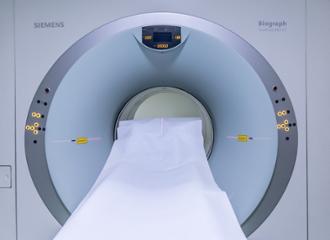- ES
- EN
Events
Start of main content

Einstein's triumphs, errors and doubts
Life and Matter Sciences Conference Wednesday, November 20, 2019, 19:30 hours Madrid
General information:
Venue: Fundación Ramón Areces - salón de actos. Calle Vitruvio, 5. 28006. Madrid.
Free admission. Necessary previous online registration. Limited capacity.
Organized by:
Fundación Ramón Areces
In cooperation with:
Real Academia de Ciencias Exactas, Físicas y Naturales
Multimedia
Interview with Álvaro de Rújula
Multimedia
Álvaro de Rújula's full lecture
Audio
- Description
- Programme
Though not akin to anyone else, Einstein was a human being. Thus, he had doubts. And he even made errors, some of them as fruitful as his greatest successes. In the XXIst century --during which Einstein's megahits continue to gain strength— it may be interesting to talk about the undeniable genius from a not exclusively eulogistic point of view.
Wednesday, November 20
19:00 h.
Attendee check-in
19:30 h.
Welcome
Raimundo Pérez-Hernández y Torra
Director de la Fundación Ramón Areces.
Manuel Aguilar Benítez de Lugo
Miembro del Consejo Científico de la Fundación Ramón Areces.
19:40 h.
Einstein's triumphs, errors and doubts
Álvaro de Rújula
Organización Europea para la Investigación Nuclear (CERN), Ginebra, Suiza. Instituto de Física Teórica CSIC-Universidad Autónoma de Madrid, España.
Álvaro de Rújula graduated and obtained his PHD in Physics in Universidad Complutense de Madrid. He has worked in Italy (ICTP, Trieste), France (IHES and Saclay, close to Paris), in the USA (Harvard and Boston Universities), at CERN (in diverse roles, from Summer Student to leader of the Theory Division) and in Madrid (Institute of Theoretical Physics of the Autónoma University).
In the 1970's he contributed to the consolidation of the Standard Model of particle physics, in particular to the study of QCD, charmed particles and their predicted masses. He has worked in many other fields, such as "X-raying" the Earth with neutrinos, measuring their masses in the lab, searching for antimatter in the Universe, understanding cosmic rays and gamma-ray bursts, and the development of the sophisticated methods that contributed to the discovery of the Higgs boson.
-
 Activities related
Activities related
-
 Projects related
Projects related
-
 News related
News related
-
 Publications related
Publications related
-
8
May
2023
Conference La insoportable levedad de los neutrinos Madrid, Monday, 8 May 2023, 19:00 hours
-
21
Sep
2023
Conference Fotones: Herramienta de Frontera para el Avance Científico, Tecnológico, Médico e Industrial Madrid, Thursday, 21 September 2023, 19:00 hours
-
20
Jun
2024
Conference Pulsos de luz de attosegundos para el estudio de la dinámica de electrones Madrid, Jueves, 20 de junio de 2024, 19:00 horas
- Development and Application of saRNAs for the Treatment of Rare Monogenic Diseases 2024 Senior Researcher : María Luisa Cayuela Fuentes
- CHANNELOSOME RESCUING PEPTIDES IN THE TREATMENT OF ARRHYTHMIAS IN INHERITABLE HEART DISEASES 2024 Senior Researcher : José Jalife Research Centre or Institution : Centro Nacional de Investigaciones Cardiovasculares (CNIC). Madrid
- Mechanisms for sustaining mitochondrial genome integrity and function during hematopoiesis. 2024 Senior Researcher : Ana Victoria Lechuga Vieco Research Centre or Institution : Fundació Clínic per a la Recerca Biomèdica. Hospital Clínic. Barcelona

End of main content




